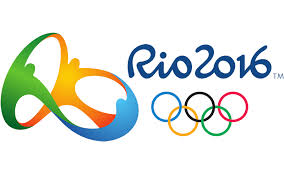By Samindra Kunti
August 15 – The delirious scenes over the weekend as the Brazilian national women’s and men’s teams progressed to the semi-final brackets of their Olympic football tournaments revealed a nation desperate for success in their chosen sport, one that they know has been their national showcase to the rest of world. Olympic football in South America is important, in Brazil, at these games, it has almost reached defining importance.
Back in 1924 at the Olympic Games in Paris, the football final was a game of inverted pyramids. Both Uruguay and Switzerland played in a 2-3-5 formation. Uruguay had shaken the European teams on the way to the final and steamrollered their way to the gold medal, defeating Switzerland 3-0. Four years later, they repeated the feat in Amsterdam in the derby of the Rio Plata, edging neighbours Argentina in a replay.
The European footballing establishment was both embarrassed and flustered, yet again, because, frankly, how could any team play with such elegance and beauty?
English professionals were banned from participation in the Olympic Games because of the football tournament’s amateur status. But Uruguay’s supremacy was not to be tolerated in Europe, and so in 1930, the first Word Cup was organised to truly identify the best team in the world.
There and then, it could be argued, football should have probably been scrapped, with a big black marker, from the Olympic programme, irrelevant in its existence and unfit for competition alongside athletics, swimming, fencing, gymnastics and other sports closely associated to the Olympic cosmos.
Today football remains an important part of the Olympic Games, mainly because of economic imperatives.
At the last Games in London in 2012, 1.5 million tickets were sold for the football event out of 1.7 million available tickets and an overall total of 6.6 million tickets. Football pulls in the crowds and the money.
Yet, men’s Olympic football is often confused by the Under-23 rule and considered by many as a distraction in an overcrowded football calendar. It serves as an Olympic parenthesis – the International Olympic Committee needs its revenue – but, at the same time, it is detached from the Olympic universe, an unnatural symbiosis between the global game and the world’s largest sports event.
Yet, in South America, Olympic football still has prominent position. It’s another chance at getting one over European teams. Hosts Brazil’s relationship with the Olympics is still fractious. In one of the great anomalies of world sport, Brazil has never won the gold medal.
The Selecao Brasileira have reached the final twice. In Seoul 1988 and four years ago, at London 2012, but twice, the Brazilians fluffed their final lines.
The importance of this Olympic tournament can’t be underestimated. Brazil are struggling as a football power, no longer a conveyor-belt of world class players and ball artists. At the last World Cup, Brazil’s unforgiving 7-1 semi-final defeat against Germany on home soil should have sprung a Copernican Revolution, an admission of Brazilian football’s fallibilities – an outdated ideology based on a non-existent passing game, but Dunga’s post-World Cup appointment was proof of a football culture in denial.
At the Olympic Games, Brazil’s men started slowly, drawing scoreless twice against South Africa and Iraq respectively. The performances sparked nationwide condemnation from all corners. The Selecao were once again a laughing stock and Brazilians didn’t take it well.
The current Olympic squad is not as impressive as at past occasions. Neymar, almost a hunchback carrying the whole of Brazil, Marquinhos, Felipe Anderson, Gabriel Jesus and Gabriel Barbosa are all present, but the outlook remains modest.
Brazil redeemed themselves with a 2-0 victory over Denmark in their final group game before dispatching Colombia 4-0 with ease and much euphoria. In both games, Brazil played well.
The country is now rallying behind the team, who play Honduras in the semi-finals. A gold medal won’t exorcise the demons of that unforgiving semi-finals defeat against Germany – who coincidentally may reach the Olympic final – but, at least, it would be welcome to Brazilian football and bring joy to a country in personal conflict over the social cost of hosting, arguably, the greatest show in earth.
Contact the writer of this story at moc.l1714389012labto1714389012ofdlr1714389012owedi1714389012sni@i1714389012tnuk.1714389012ardni1714389012mas1714389012

